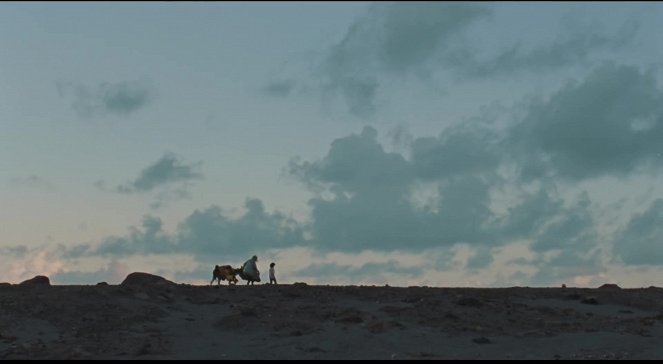Réalisation:
Benh ZeitlinPhotographie:
Sturla Brandth GrøvlenActeurs·trices:
Devin France, Yashua Mack, Shay Walker, Krzysztof Meyn, Gage Naquin, Gavin Naquin, Ahmad CageVOD (3)
Résumés(1)
Elevée par sa mère célibataire, Wendy s’étiole dans un quotidien dénué de magie. Un soir, la fillette part à l’aventure en sautant dans un train en marche avec ses deux petits frères, les jumeaux James et Douglas. Au terme du voyage, ils débarquent sur une île mystérieuse, où les enfants ne semblent pas vieillir et où règne un garçon rebelle, nommé Peter Pan. (Condor)
(plus)Critiques (1)
Compared to Zeitlin’s spellbinding debut Beasts of the Southern Wild, Wendy is not as pure, but as an adaptation of "Peter Pan", it is absolutely phenomenal. If Disney approached its live-action variations of the classics in a similarly distinctive, creative and unconventional manner, cinema would be much more diverse and inspiring. Of course, Wendy does not have the first film’s spark of creative eruption and revelation of talent, but it is fascinating as an apparent dream project and unique retelling of Barrie’s original "Peter Pan", which is due entirely to the director’s touch. With his style of fantastic realism, Zeitlin creates another beautifully earthy fairy-tale for adults about a girl with an indomitable spirit. He combines the theme of growing up in the sense of the loss of illusions and dreams with environmentalism as the main source of magical power in an otherwise modest adaptation to fantasy elements. At the same time, he supports these main storylines by inventively combining and altering some of the motifs of the original work on which the film is based. In some scenes, Wendy is enchanting and pulsating with tremendous energy, and in some adaptation solutions it is inspiring, while remaining wildly unruly, even obstinately boisterous, as well as charming and picturesque with its grungy romanticism. The film unavoidably polarises the audience, but in the end, one can see not only creative uncompromisingness in rejecting superficial appeal and accessibility, but also fidelity to the original work, which itself divides readers into those who believe and those who do not.
()

